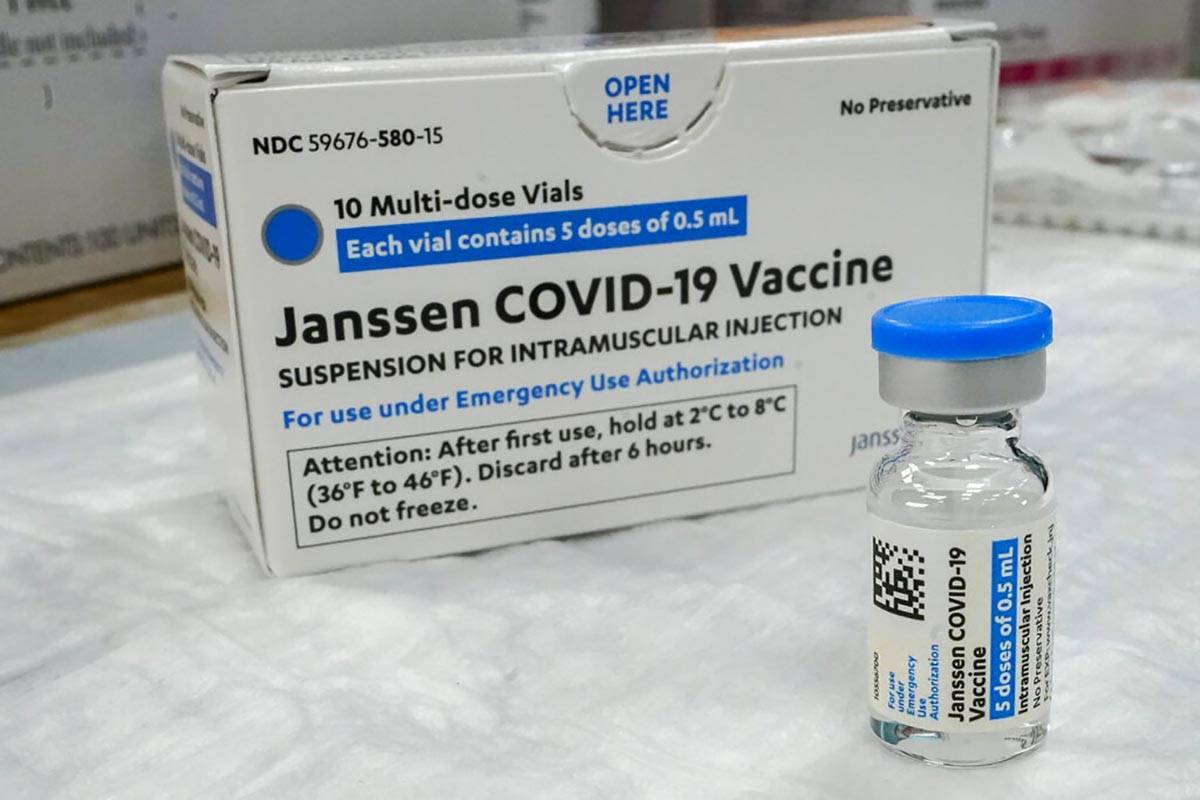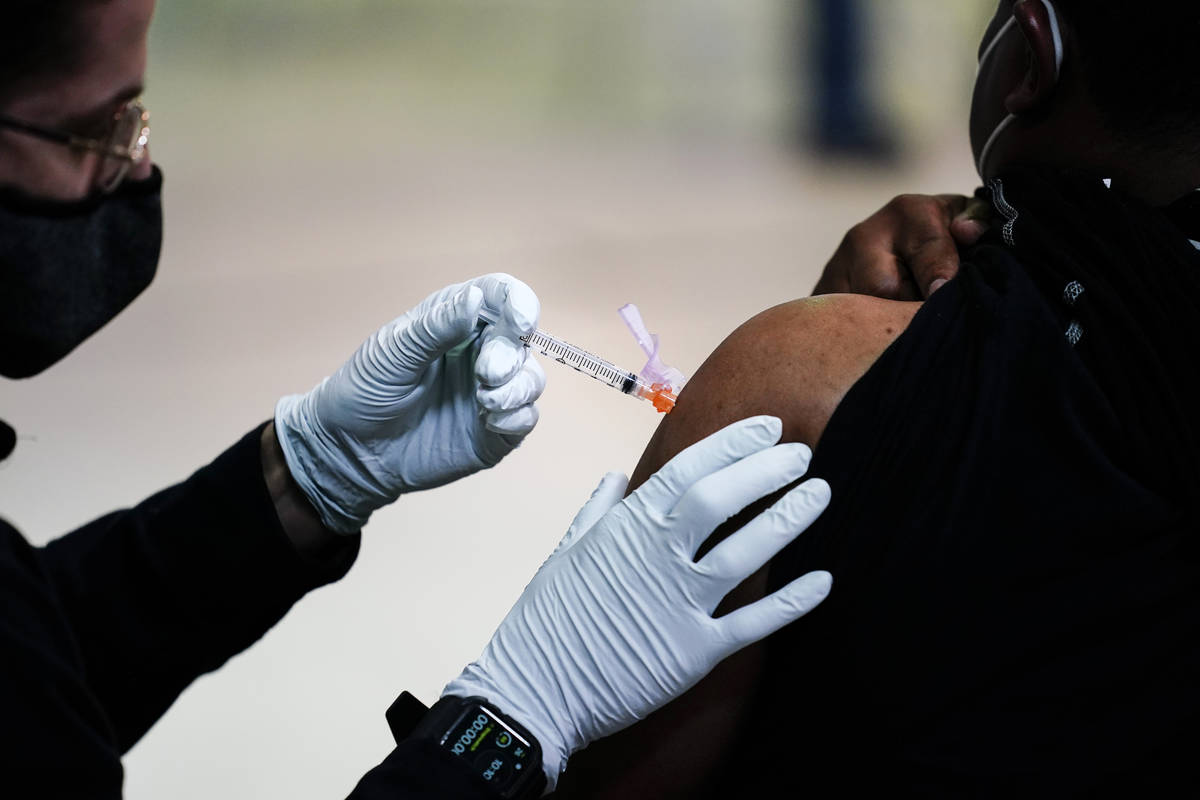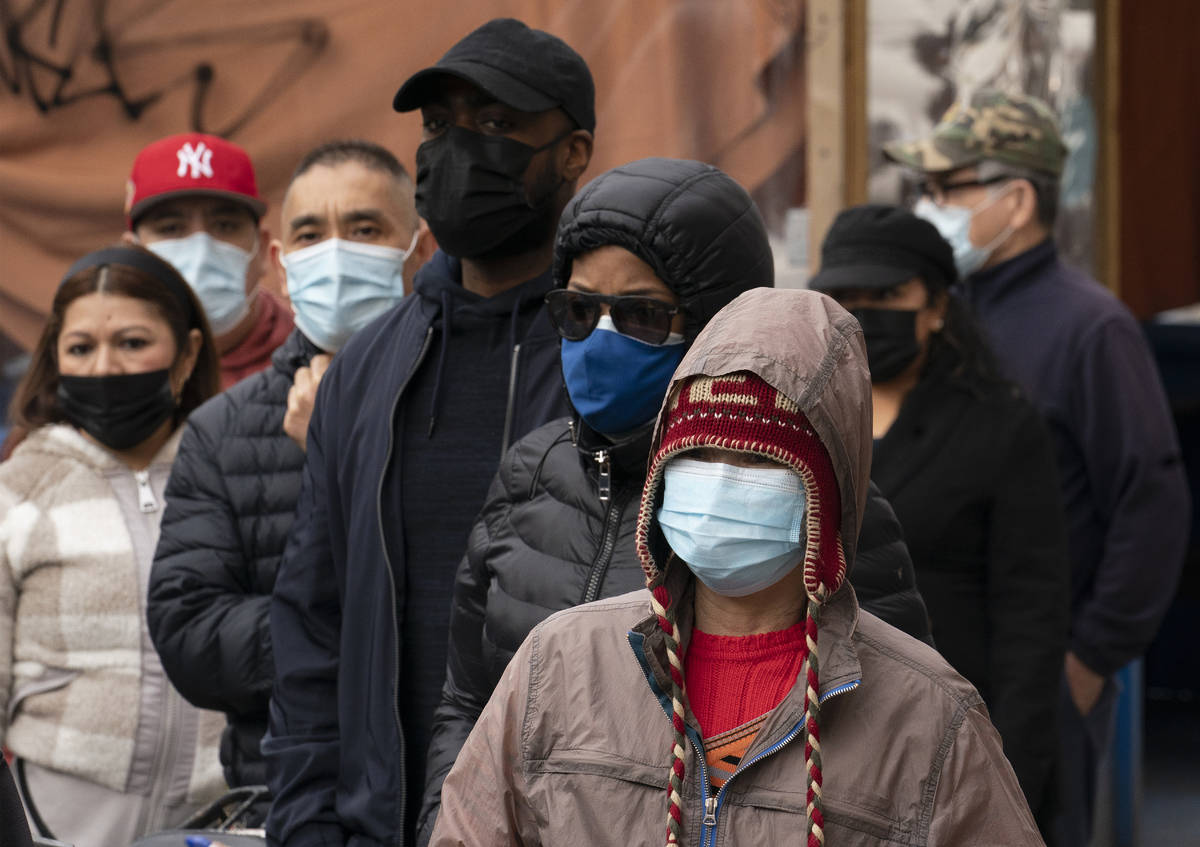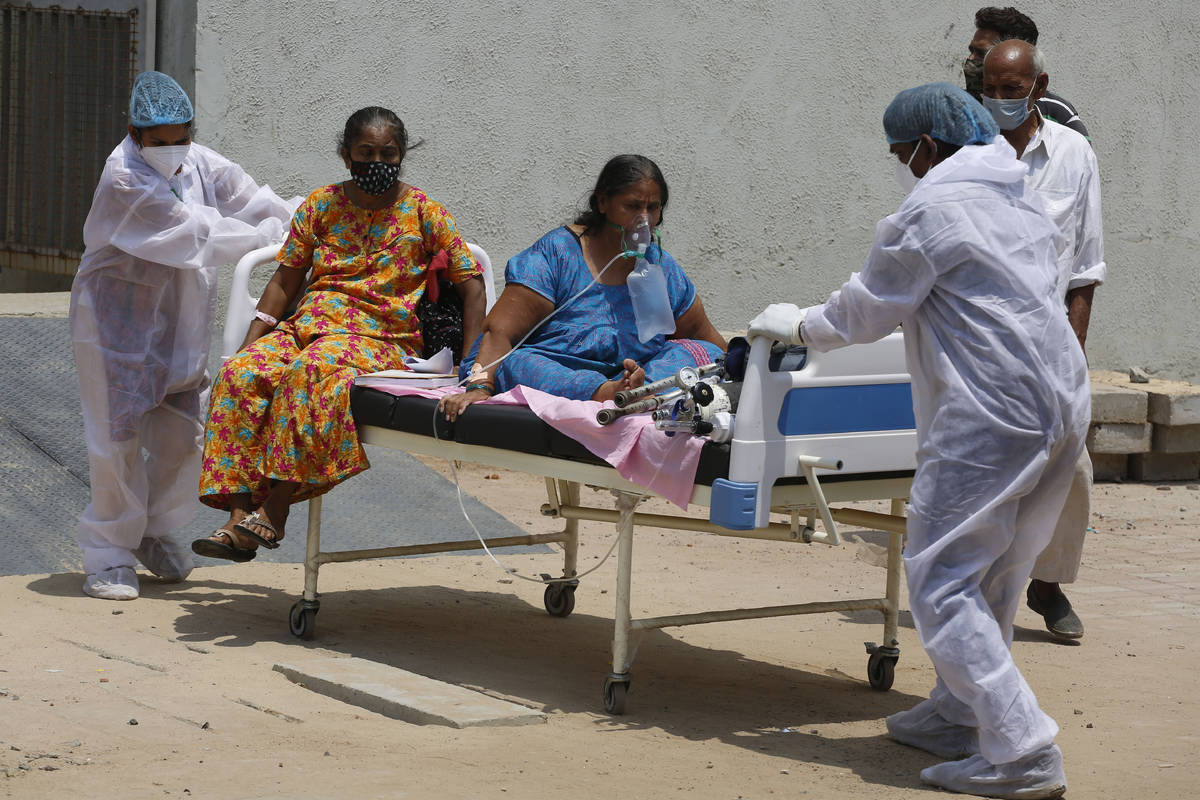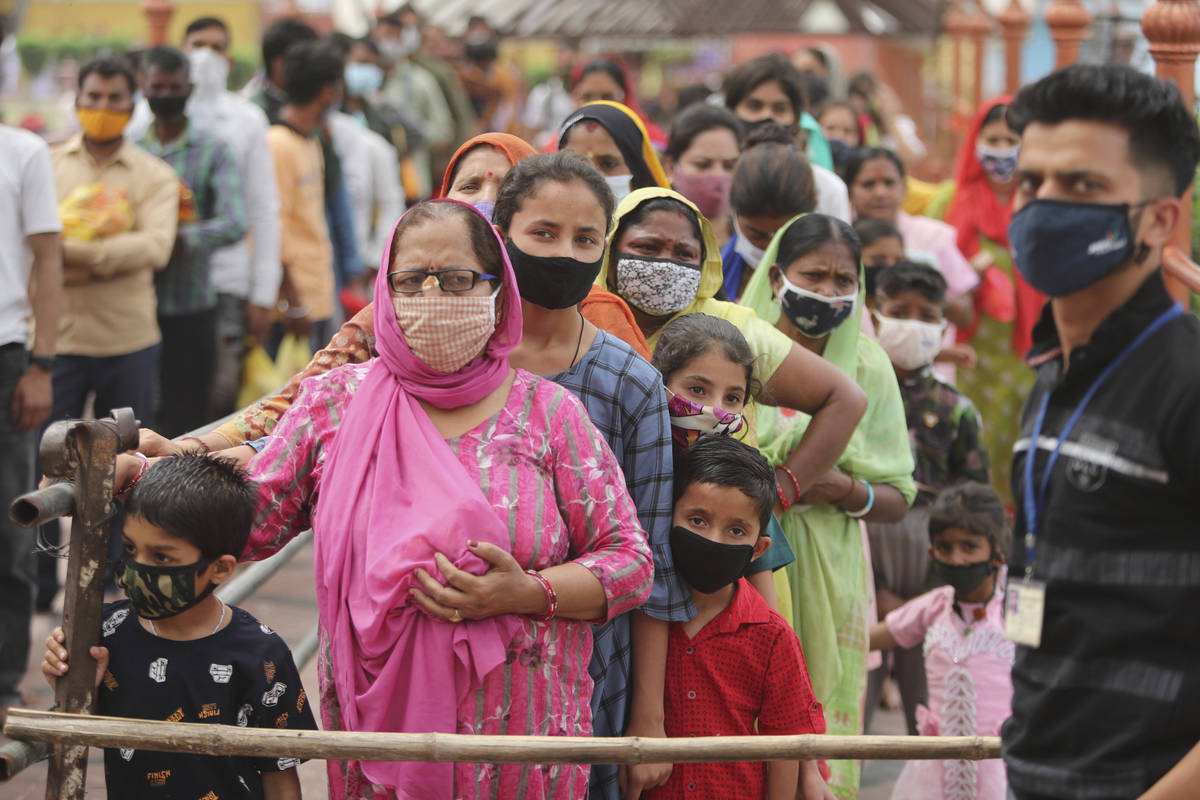CDC, FDA recommend ‘pause’ for single-dose J&J vaccine over clot reports
WASHINGTON — The U.S. is recommending a “pause” in administration of the single-dose Johnson & Johnson COVID-19 vaccine to investigate reports of potentially dangerous blood clots.
In a joint statement Tuesday, the Centers for Disease Control and Prevention and the Food and Drug Administration said they were investigating unusual clots in six women that occurred 6 to 13 days after vaccination. The clots occurred in veins that drain blood from the brain and occurred together with low platelets. All six cases were in women between the ages of 18 and 48.
The FDA said the pause would last a “matter of days.”
The reports appear similar to a rare, unusual type of clotting disorder that European authorities say is possibly linked to another COVID-19 vaccine not yet cleared in the U.S., from AstraZeneca.
More than 6.8 million doses of the J&J vaccine have been administered in the U.S., the vast majority with no or mild side effects.
SNHD, Nevada halt use of J&J
Following the recommendations of the CDC and FDA, the Southern Nevada Health District has stopped administering the vaccine in its clinics and advised its community partners to do the same, according to SNHD news release.
Use of the J&J vaccine will be halted in Nevada until the review is complete, according to Nevada Health Response.
“The Nevada Department of Health and Human Services (DHHS) and the Nevada State Immunization Program are contacting providers to inform them of this announcement and working to avoid any disruption of planned vaccination clinics,” the release stated.
The state is working with local partners to contact anyone scheduled for a Janssen vaccine who may be affected. Pfizer and Moderna vaccines remain available for providers in Nevada and appointment slots are open across the state. Nevadans should watch for announcements from local health districts or providers for additional information as it becomes available.
Additionally, the Janssen product has been used on the two Mobile Vaccine Units (MVUs) that are traveling in Nevada’s rural and frontier regions. No clinics are planned for the MVUs today. Once additional information is available, the State will update Nevadans on the plans for the mobile units.
Feds, states likely to halt J&J shots
U.S. federal distribution channels, including mass vaccination sites, will pause the use of the J&J shot, and states and other providers are expected to follow.
The other two authorized vaccines, from Moderna and Pfizer, make up the vast share of COVID-19 shots administered in the U.S. and are not affected by the pause.
CDC’s Advisory Committee on Immunization Practices will meet Wednesday to discuss the cases and the FDA has also launched an investigation into the cause of the clots and low platelet counts.
“Until that process is complete, we are recommending a pause in the use of this vaccine out of an abundance of caution,” Dr. Anne Schuchat, principal deputy director of the CDC, and Dr. Peter Marks, director of the FDA’s Center for Biologics Evaluation and Research, said in a joint statement.
They are recommending that people who were given the J&J vaccine who are experiencing severe headache, abdominal pain, leg pain, or shortness of breath within three weeks after receiving the shot contact their health care provider.
U.S. health authorities cautioned doctors against using a typical clot treatment, the blood-thinner heparin. “In this setting, administration of heparin may be dangerous and alternative treatments need to be given,” the FDA and CDC said.
European authorities investigating the AstraZeneca cases have concluded clots appear to be similar to a very rare abnormal immune response that sometimes strikes people treated with heparin, leading to a temporary clotting disorder.
Officials say they also want to educate vaccine providers and health professionals about the “unique treatment” required for this type of clot.
No link established, says J&J
Johnson & Johnson said it was aware of the reports of “thromboembolic events,” or blood clots, but that no link to its vaccine had been established.
“We are aware that thromboembolic events including those with thrombocytopenia have been reported with Covid-19 vaccines,” said Johnson & Johnson in a statement. “At present, no clear causal relationship has been established between these rare events and the Janssen Covid-19 vaccine.”
States swiftly moved Tuesday morning to implement the pause. New York state health commissioner Dr. Howard Zucker said the state will follow the recommendation and pause the use of the Johnson & Johnson vaccine at state-run sites. People with Tuesday appointments for Johnson & Johnson vaccines at state-run mass vaccination sites will instead get the Pfizer vaccine, he said.
The city of Dallas had planned to begin an in-home vaccination program Tuesday using the Johnson & Johnson vaccine for homebound or elderly people. The city, citing the FDA announcement, said it will pause the program until more guidance is released.
In Mississippi, state health officer Dr. Thomas Dobbs, said Tuesday on Twitter that the state health department is “instructing all physicians, clinics and hospitals to refrain from using Johnson and Johnson until additional guidance (is) available from CDC/FDA.”
The J&J vaccine received emergency use authorization from the FDA in late February with great fanfare, with hopes that its single-dose and relatively simple storage requirements would speed vaccinations across the country. Yet the shot only makes up a small fraction of the doses administered in the U.S. as J&J has been plagued by production delays and manufacturing errors at the Baltimore plant of a contractor.
Last week the drugmaker took over the facility to scale up production in hopes of meeting its commitment to the U.S. government of providing about 100 million doses by the end of May.
9M doses delivered
Only about 9 million of the company’s doses have been delivered to states and are awaiting administration, according to CDC data.
Until now concern about the unusual blood clots has centered on the vaccine from AstraZeneca, which has not yet received authorization in the U.S. Last week, European regulators said they found a possible link between the shots and a very rare type of blood clot that occurs together with low blood platelets, one that seems to occur more in younger people.
The European Medicines Agency stressed that the benefits of receiving the vaccine outweigh the risks for most people. But several countries have imposed limits on who can receive the vaccine; Britain recommended that people under 30 be offered alternatives.
But the J&J and AstraZeneca vaccines are made with the same technology. Leading COVID-19 vaccines train the body to recognize the spike protein that coats the outer surface of the coronavirus. But the J&J and AstraZeneca vaccines use a cold virus, called an adenovirus, to carry the spike gene into the body. J&J uses a human adenovirus to create its vaccine while AstraZeneca uses a chimpanzee version.
The announcement hit U.S. stock markets immediately, with Dow futures falling almost 200 points just over two hours before the opening bell. Shares of Johnson & Johnson dropped almost 3%.



